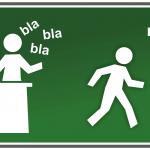In America today we see the very foundations of morality and law crumbling under our feet. Because of this, we must find ways to generate serious discussion about the nature and application of both. As populist, revolutionary forces who view law as sheer political power subvert the synthesis of Judeo-Christian morality and classical, liberal Contractarianism as the basis for Law, we dare not find ourselves in an unresponsive slumber. Therefore, it becomes ever more critical for Christians to reexamine both the ethical commands found in the revealed Law of Scripture, as well as the moral law inscribed in nature, that is, in the natural law.
The Most Important Movie Ever Made
With regard to the latter, the natural law, I can think of no more important film to show to a church group, especially a Young Adults’ ministry, than the 1961 movie “Judgement at Nuremberg.” Shot within 20 years of the actual Nuremberg trials, the production of the film was both controversial and courageous. It was released in the same year that Adolph Eichmann, the architect of the Nazi concentration camps, was tried and convicted in Israel (Eichmann was later hanged in 1962), and well within the living memory of many WWII veterans, to include many Germans and Austrians who had fought in the war. Directed by Stanley Kramer, it has since been assigned special status by the Library of Congress’ United States National Film Registry, being deemed a work of “cultural, historical and aesthetic” significance.
Young Adult or teachings pastors who like to show movies to spark important theological and biblical conversations, and generate “conversations that matter,” should not overlook this film. There will always be time to give our minds a dopamine fix with the latest overdose of Marvel or Matrix eye candy. Those cultural tokens will not go away any time soon, their mind-numbing qualities indeed being one step on the road to the new dystopia.
Instead, we must turn to more sober things, things that may not be around much longer but that could help us preserve a culture still worth fighting for. Contemplating the nature of Nazi atrocities and the chipping away at the authority of God’s revealed Word and the natural law which lead up to the Nuremberg laws is a good way to start reviving the current generation. It is for this reason I believe “Judgement at Nuremberg” to be the most important movie ever made. It is not only because of its enduring aesthetic quality (due, in part, to an incredible cast), but because of the enduring metaphysical and moral questions it poses its audience. No one can walk away from this film without reconsidering or reaffirming something quite deep about the human condition.
8 Questions for Further Reflection
Because I truly hope Young Adult and High School ministry leaders will show this film, I am providing a set of study questions that can be handed out in advance of the viewing. Reading great literature, or watching great films, can act a genuine catalyst for not only reflection but also corresponding action. We are at a crossroad in our nation’s history and we must prepare the next generation for battle, even if we realize that that battle is often not within our power to win.
Only a fool would think that something very much like a Nazi Germany could not emerge again in the course of human affairs. In fact, many today think the conditions are right for the next totalitarian state to appear. Personally, given the biblical arc, I see it as a perennial inevitability. However, regardless of what actually comes to pass, we should heed Aleksandr Solzhenitsyn’s timeless warning, a warning born out of experience, “Let the lie come into the world, let it even triumph. But not through me!”
However, if we are not in a position to recognize the lie, then how will we even know if it is coming through us or not? It is in this sense that I say we must prepare the next generation for battle. It is not a physical battle, it is spiritual. Watching the film and considering these questions should be aid in identifying and avoiding that lie.
Here are eight questions to consider as your group watches the movie:
- Pay attention to the German defense attorney’s (Maximillian Schell) arguments. What are his arguments? What is his main point about what is legally right or wrong? Are his arguments valid arguments? Do you see people making arguments like this in our culture today as it applies to their own behavior? If you do, where and how?
- Pay attention to the prosecution’s (Richard Widmark) arguments against the Nazi judges? What is he resting his case on? What sources of moral authority does he invoke or reference? What source of moral authority is noticeably absent from his case?
- Think about the scene where Judge Haywood (Spencer Tracy) questions the servants of the house he is living in? To what extent were these “ordinary” Germans responsible for what happened? To what extent were they innocent or not culpable? What would you have done? Be sober in your assessment.
- Why does Ernst Janning (Burt Lancaster) stop the trial/questioning of the witness? What ultimately convicts him that it must stop?
- Consider Judge Haywood’s talk with Janning at the end of the film. What does he say about how Janning should have known that what he was doing is wrong?
- Has God placed in nature itself an “ethos?” Does nature reflect morality in any way? In other words, is there something about the structure of nature that tells us how are lives should be ordered or structured?
- If there is something about the structure of the natural world that tells us about the nature of morality, then how do we know about it? How do we discern that structure and how do we discern when and how it matches up with morality?
- Finally, from a specifically Christian perspective, given the biblical Revelation, what is the problem with discerning moral values and duties from nature alone? Why will this always lead us astray if not supplemented with Scripture?
Photo: “Copyright © 1961 by United Artists Corporation.”, Public domain, via Wikimedia Commons














